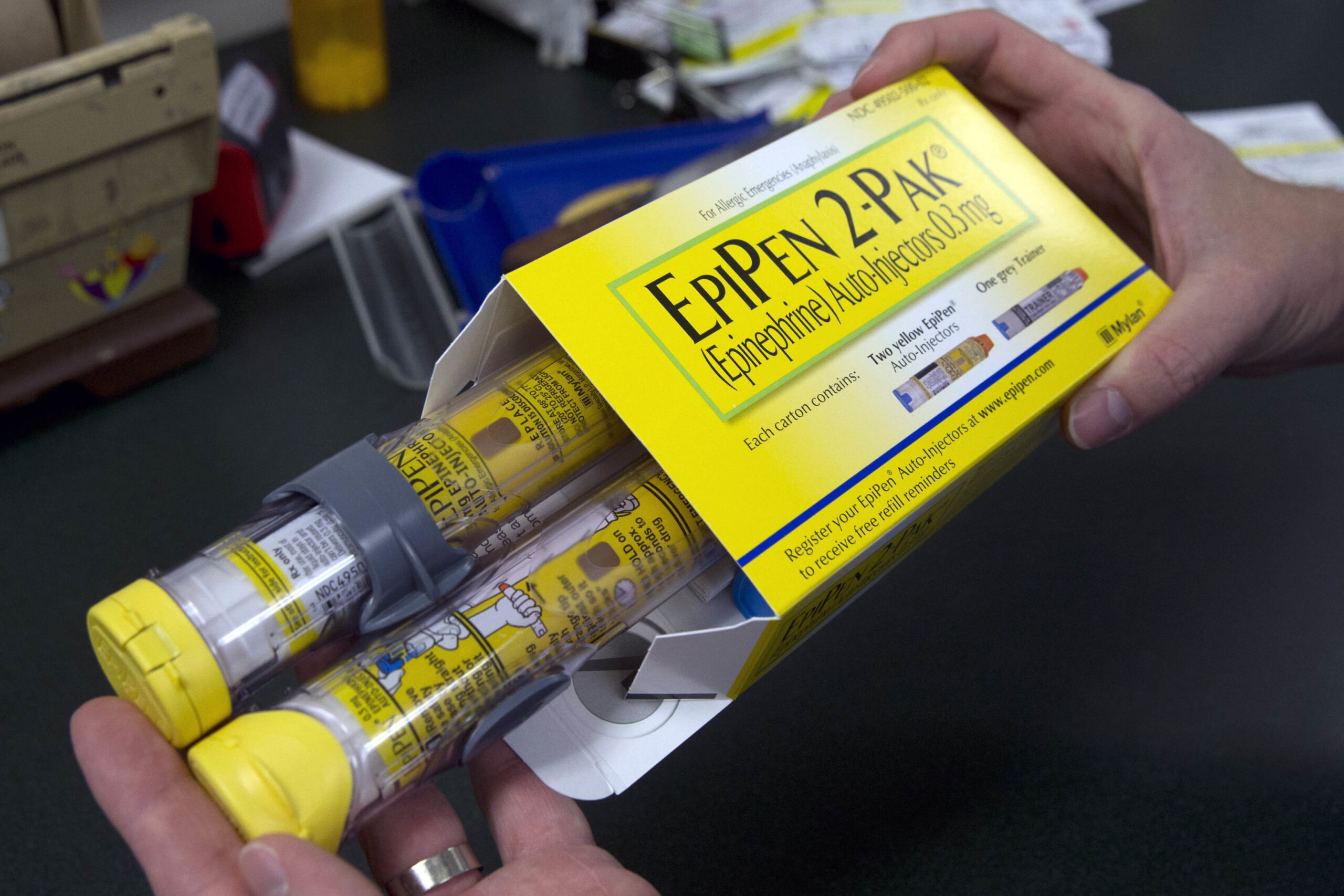MORGANTOWN — Pfizer and two of its subsidiaries have agreed to a $345 million settlement in a four-year class-action antitrust lawsuit concerning Mylan’s EpiPen.
Pfizer subsidiary Meridian manufactures the EpiPen epinephrine auto-injector for Mylan. The plaintiffs alleged that Mylan and Pfizer engaged in conduct to stifle competition and drive up the price of the EpiPen.
The case originated in 2016; numerous class action suits were filed, then centralized and transferred in 2017 to the U.S. District Court for the District of Kansas.
Pfizer and the plaintiffs reached their settlement agreement in June, the court documents published Thursday indicate. A judge must grant final approval; an initial hearing is set for later this month and a hearing on final approval is proposed for October.
Class counsel will apply for attorney fees up to one-third of the $345 million, along with plaintiffs’ counsel expenses plus interest. From the remainder, the settlement’s Plan of Allocation will create two pools of funds from the Net Settlement Fund, one for individual consumers and one for third-party payors; 20% will go to individuals, 80% to third-party payors.
The settlement documents spell out that Pfizer denies any wrongdoing or liability, and denies that plaintiffs have suffered any injuries or damages. The settlement outweighs the risks associated with protracted litigation, Pfizer says.
Last month, co-defendant Mylan won a significant victory in the case, when the judge granted Mylan partial summary judgment against the plaintiffs’ antitrust claims and summary judgment against their Racketeer Influenced and Corrupt Organizations (RICO) Act claims, including charges against former Mylan CEO Heather Bresch — who retired when Mylan merged with former Pfizer subsidiary Upjohn to become Viatris.
The only claim remaining in the case involves an allegation that in 2012 Pfizer entered into a “reverse payment” or “pay-for-delay” settlement with Teva, which was attempting to market a generic epinephrine auto-injector. That issue is set to go to trial Sept. 7.
TWEET David Beard @dbeardtdp
EMAIL dbeard@dominionpost.com




